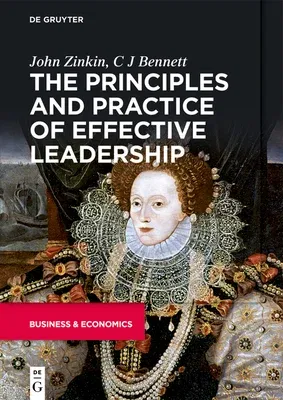This thought-provoking and timely book asserts that the dichotomy
between leaders and managers described in much business literature
fails to recognize how the two roles overlap. The book discusses
techniques for senior executives based on history and neuroscience to
enhance their "managerial leadership" in different environments. The
ethical dilemmas of directors and executives are explored, with lessons
from both leadership failures and successes.
The Principles and Practice of Effective Leadership redefines
"leadership" as a morally neutral activity, reflecting the impact of
strategic, cultural and operational contexts on a leader's
effectiveness. The authors suggest there are universal but morally
neutral techniques for effective leadership that depend on the context
in which they are practiced. In Part 1, the careers and personalities of
historical figures including Elizabeth Tudor, Napoleon, and Atatürk are
examined. Part 2 deliberates on why leadership cannot be separated from
effective management and concludes that leadership is managerial, and
best encapsulated in the concept of "wayfinding." In Part 3, the authors
discuss the techniques "wayfinders" can learn to be both effective and
ethical, using a simple and practical framework.
This insightful book is essential reading for professionals, coaches,
consultants, and academics interested in techniques and ethics of
leadership and executive education.

